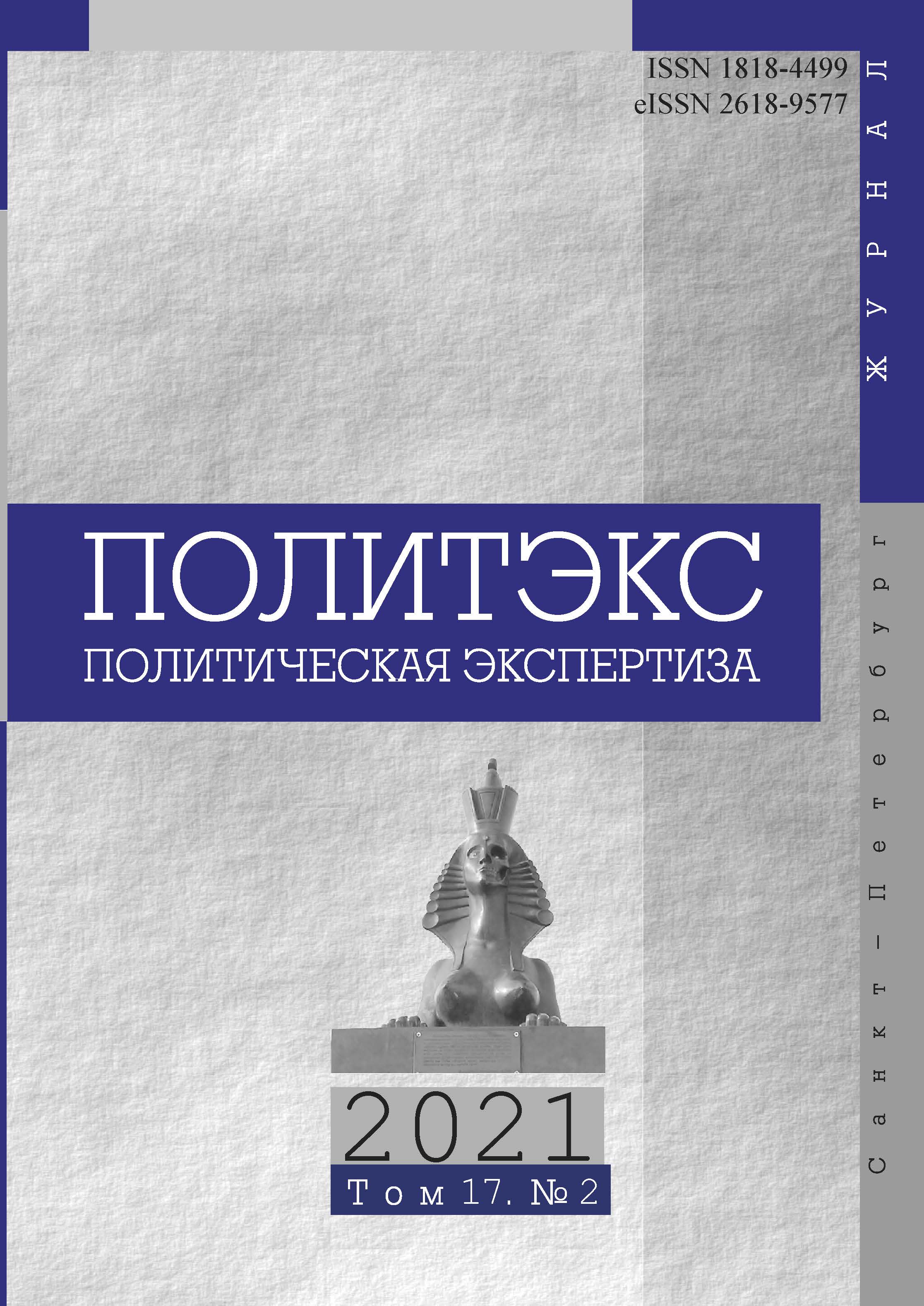FORMATION OF THE USSR MOBILIZATION MODEL OF ECONOMIC DEVELOPMENT IN THE CONDITIONS OF AN UNSTABLE SYSTEM OF PUBLIC ADMINISTRATION IN THE PRE-WAR PERIOD
DOI:
https://doi.org/10.21638/spbu23.2021.207Abstract
The article considers the phenomenon of the mobilization model of the economy of the Soviet Union in the interwar period through the concepts of technological zones by Oleg Grigoriev and the pendulum model of management by Alexander Prokhorov. These concepts allow us to analyze the structural features of the Soviet technological zone and its differences from the technological zones of capitalist economies. It is also shown that the domestic technological zone could be formed only in mobilization conditions, when the state management system was formed, ensuring a high level of resource mobilization and their redistribution to special strategic areas of development. The emergency management system creates a mobilization type of economy, which is characterized by: the identification of priority economic units (from economic sectors to enterprises) of strategic importance; centralized management, long-term planning; concentration of investment capital in the production sector; and broad state participation in the economic sphere. A striking historical precedent for an effective mobilization economy is the Stalinist economic model, thanks to which the Soviet Union won an economic victory over Germany at the end of 1942. The selected priorities of the Soviet economy of the Stalinist period are still relevant today: the military-industrial complex; the fuel and energy complex; the agro-industrial complex; the transport system; and the education system. Thanks to the development of these priority socio-economic spheres of the Soviet period, the Russian Federation has a significant and unique scientific and technological, production and personnel base. In the USSR after the Second World War, an innovative model of state development was implemented, which relies on the production of new knowledge.
Keywords:
technological zone, mobilization model, division of labor, competition of administrators, territorial production complexes
Downloads
References
Верхотуров Д. Н. За что Запад не любит Россию. URL: http://www.stoletie.ru/versia/za_chto_zapad_ne_lubit_rossiju_194.htm (02.09.2014).
Гончарова Г. А., Баканова С. А., Гришина Н. В., Пасс А. А., Фокина А. А. Общества мобилизационного типа: проблемы теории и практики. Челябинск: Энциклопедия, 2013. 296 с.
Гончарова Г. А., Баканова С. А., Гришина Н. В., Пасс А. А., Фокина А. А. Мобилизационная модель развития российского общества в ХХ веке: монография. Челябинск: Энциклопедия, 2013. 128 с.
Григорьев О. В. Эпоха роста. Лекции по неокономике. Расцвет и упадок мировой экономической системы. М.: Карьера Пресс, 2014. 433с.
Гуань Сюэлин, Чжан Мэн. Политэкономия Владимира Путина. СПб.: СПбГУ, 2017. 329 с.
Зиновьев А. А. Русский эксперимент. М.: L’Age d’Homme — Наш дом, 1995. 448 с.
Караваева И. В. Экономический фундамент Победы: параллели истории и современности. М.: Институт экономики РАН, 2015. 344 с.
Касатонов В. Ю. Экономика Сталина / под ред. О. А. Платонова. М.: Институт русской цивилизации, 2014. 416 с.
Паршев А. П. Почему Россия не Америка. М.: Крымский мост-9Д, Форум, 2018. 414 с.
Прохоров А. П. Русская модель управления. М.: Изд-во Студии Артемия Лебедева, 2017. 496 с.
Райнерт Э. С. Как богатые страны стали богатыми, и почему бедные страны остаются бедными. М.: Изд. Дом Высшей школы экономики. 2014. 382 с.
Рекорд С. И. Возможности использования советского наследия промышленных взаимодействий для развития трансграничных промышленно-инновационных кластеров на пространстве СНГ // Проблемы современной экономики. 2012. № 4(44). С. 321–325.
REFERENCES (In English)
Goncharova G. A., Bakanova S. A., Grishina N. V., Pass A. A., Fokina A. A. Societies of the mobilization type: problems of theory and practice. LLC Center for Intellectual Services «Encyclopedia». Chelyabinsk, 2013. 296 p. (In Russian)
Goncharova G. A., Bakanova S. A., Grishina N. V., Pass A. A., Fokina A. A. Mobilization model of the development of Russian society in the twentieth century. Chelyabinsk: Encyclopedia Publ., 2013. 128 p. (In Russian)
Grigoriev O. V. The era of growth. Lectures on economics. The rise and fall of the world economic system. Career Press. Moscow, 2014. 433 p. (In Russian)
Guan Xueliang, Zhang Meng. Vladimir Putin's Political Economy. St. Petersburg: St. Petersburg University Press, 2017. 329 p. (In Russian)
Karavaeva I. V. The Economic Foundation of Victory: parallels of history and modernity. Institute of Economics of the Russian Academy of Sciences, Moscow, 2015. 344 p. (In Russian)
Kasatonov V. Yu. The Economy of Stalin. Edited by O. A. Platonov. Institute of Russian Civilization, Moscow, 2014. 416 p. (In Russian)
Parshev A. P. Why Russia is not America. Krymsky most-9D, STC «FORUM», Moscow, 2018. 414 p. (In Russian)
Prokhorov A. P. Russian model of management. Artemy Lebedev Studio Publishing House, Moscow, 2017. 496 p. (In Russian)
Reinert E. S. How rich countries became rich, and why poor countries remain poor. The house of the Higher School of Economics. 2014. 382 p. (In Russian)
Rekord S. I. Possibilities of using the Soviet heritage of industrial interactions for the development of cross-border industrial and innovative clusters in the CIS. Problems of the modern economy. No. 4(44), 2012. pp. 321-325. (In Russian)
Verkhoturov D. N. Why the West does not like Russia. Available at: http://www.stoletie.ru/versia/za_chto_zapad_ne_lubit_rossiju_194.htm (accessed: …). (In Russian)
Zinoviev A. A. Russian experiment. Moscow: L'age d'Homme — Our House, 1995. 448 p. (In Russian)
Downloads
Published
How to Cite
Issue
Section
License
Articles of "Political Expertise: POLITEX" are open access distributed under the terms of the License Agreement with Saint Petersburg State University, which permits to the authors unrestricted distribution and self-archiving free of charge.




